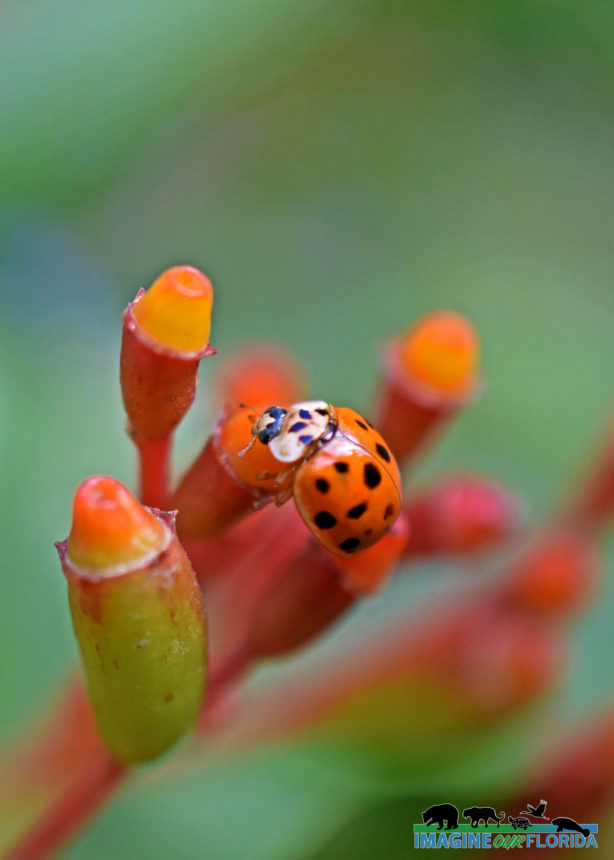Ladybugs (Coccinellidae), aka Lady Bettles, a worldwide symbol of good luck, are best known for their voracious appetite for aphids. As omnivores, they dine on whiteflies, mites, mealybugs, scale insects, mildews and can devour up to 5,000 aphids in their lifetime.
Ladybugs live two to three years and grow to between 1/3 and a little over 3/8 of an inch. Female ladybugs lay golden eggs on the underside of leaves, often near an aphid colony. In a few days, the eggs hatch, and the larvae will eat between 350 and 400 aphids within two weeks before becoming adults.
Ladybugs’ strikingly bright colors make them easily identifiable, but unappealing to predators. A fluid secreted from the joints in their legs makes them taste bad too. Ladybugs will outsmart their predators by secreting the foul smell while playing dead.
When temperatures fall, Ladybugs enter into diapause, and live off their stored reserves for up to nine months. When the temperature warms to 55°, they will resume a normal life. As they take flight, their tiny wings beat about 85 times per second.
Did you know Ladybugs went to Outer Space? A space shuttle carried four ladybugs, and a jar of aphids as part of a zero-gravity experiment. Ladybugs did not need gravity to dine on the aphids.
It is not a good idea to purchase Ladybugs. Most that are for sale have been wild-caught. There have been no studies done to determine whether or not any harm is being done to the Ladybug population in the area they are caught. This can result in more pesticide use when ladybugs are not present. Ladybugs are not tested for disease before shipment, so they could potentially introduce disease-carrying pathogens to native Ladybugs in your area. Ladybugs introduced to your garden will fly away if there are not enough food sources to sustain them.
The best way to attract some of Florida’s 98 species of Ladybugs to your landscapes is to avoid chemicals. Learn to identify the larvae and leave them alone to eat the harmful pests in your garden.
Photo Credit: Andy Waldo

